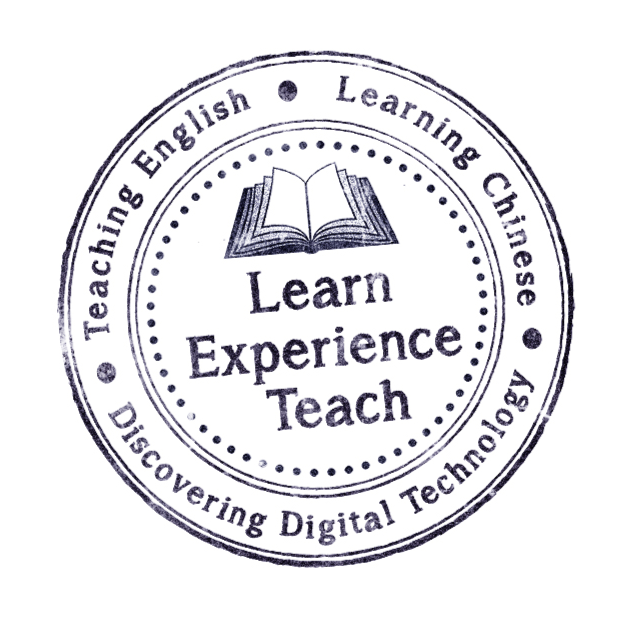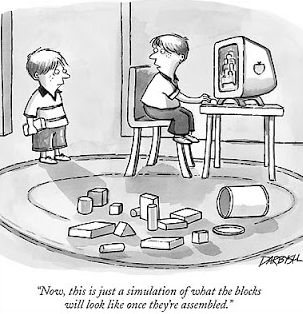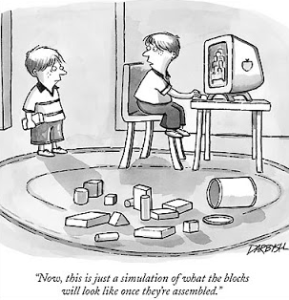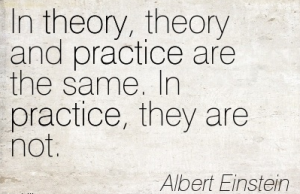Revisiting the Gap between SLA Researchers and Language Teachers by David Block discusses gap or a mismatch between theories of SLA and practices, whereby the way in which we teach languages is often un- or ill – related to the findings of researchers in Second Language Acquisition.
This topic resonates with me now as, just yesterday, a reader of my blog (the only one?!), contacted me to say she loves the high-brow talk of concepts, theories and ‘ideas’, but suggested something like a lesson plan or some activities with instructions, would be more practical. And she’s right! It’s all well and good, talking the talk, but what about walking the walk? Well, dear readers, the practical stuff is coming. Please be patient!
Mind the Gap
I do agree with Block that, ‘…there is the paradox that the more research there is into SLA, the more disengaged from language teachers this research becomes’. Refering to my experience above, it seems I am so deeply involved in theory, I hardly have any time for the practical side of things. Clearly, time is an issue. So, I think many teachers are probably interested in the latest research in and around SLA, but very few have extra time to pick up a journal and read about it.
Entwined with a lack of time for anything other than lesson planning and actual teaching, is the issue of money. Teachers, being less well-paid than academics, find little incentive to delve deeper into the theory of their own profession, unlikely as they are to be rewarded for any extra professional development they may divulge in.
Block points out that the biggest difference between an SLA researcher and a language teacher, is “…the physical and psychological space which separates practitioners around the world from academics who are currently not teachers.” Thinking back to completing the CELTA, I left on a high, armed with terms such as ‘grade your language‘, and ‘minimise your T.T.T.’, ready to teach the world! But there were a number of key points I was not trained on, such as understanding management decisions, managing parents expectations, dealing with a lack of resources etc. These issues all come before I actually step into the classroom. So there definitely is a disconnect between how, theoretically, teaching should be carried out, and the reality of the actual day-to-day job.
At the same time, I feel lucky in the sense that I do feel I am at least listened to, if not always adhered to. I do have a certain freedom to teach how I see fit, and using my own materials is encouraged. However, I do see that being forced to ‘teach by the book’ can lead to teachers becoming ‘progressively de-skilled and ultimately de-classed.’ If academics are to be considered less “as the makers of knowledge which teachers are expected to process and use”, and teachers are to be empowered, then we must seek out ways to bridge the ideological gap.
Bridging the Gap
One possible solution for closing the gap between SLA researchers and language teachers is action research. This is the idea of incorporating research into classroom activities to see what works, what doesn’t work and to what extent it improves the language learning process. I like the idea, but do understand that it may not always be fruitful, and take heart with the authors failed attempts. For me, I like to try out new things. I think about what works. I underline the student needs. But that is often out of step with management needs, and may not be incorporated into school-wide practice. But are there other ways to share this new found knowledge? The author talks of putting together a poster presentation and travelling to an international conference. Fifteen years after this paper was published, technological innovations allow internet users to make a ppt or Prezi which may be shared by email. Otheriwse, teachers may hold a webinar, or record and upload a screencast to the web, making the content accessible, anytime, anywhere. Indeed, here I am, typing away, in a vain attempt to share my knowledge!
My Thoughts
I feel that being a second language learner informs my role as a language teacher. Surely, then, an equal balance of theoretical knowledge and ample teaching practice is the recipe for the perfect language teacher?! Or is that overly idealistic? Is it naive of me to say I’d like to try to stay informed of SLA and try to apply it to my practice? Only time will tell.
As regards my initial post, then, about how learners acquire a second language, Block’s position reinforces the conclusion I came to (well, I hope I did!) that the magic glue that holds it all together is the teacher. And without adequate time, money and (continued) training and support for the teacher, then the ideal tenets of second language acquisition, whether theoretical, or practical, may not be upheld.
References
Block, D. (2000), Revisiting the Gap between SLA Researchers and Language Teachers, Links and Letters (7) pp129-143



